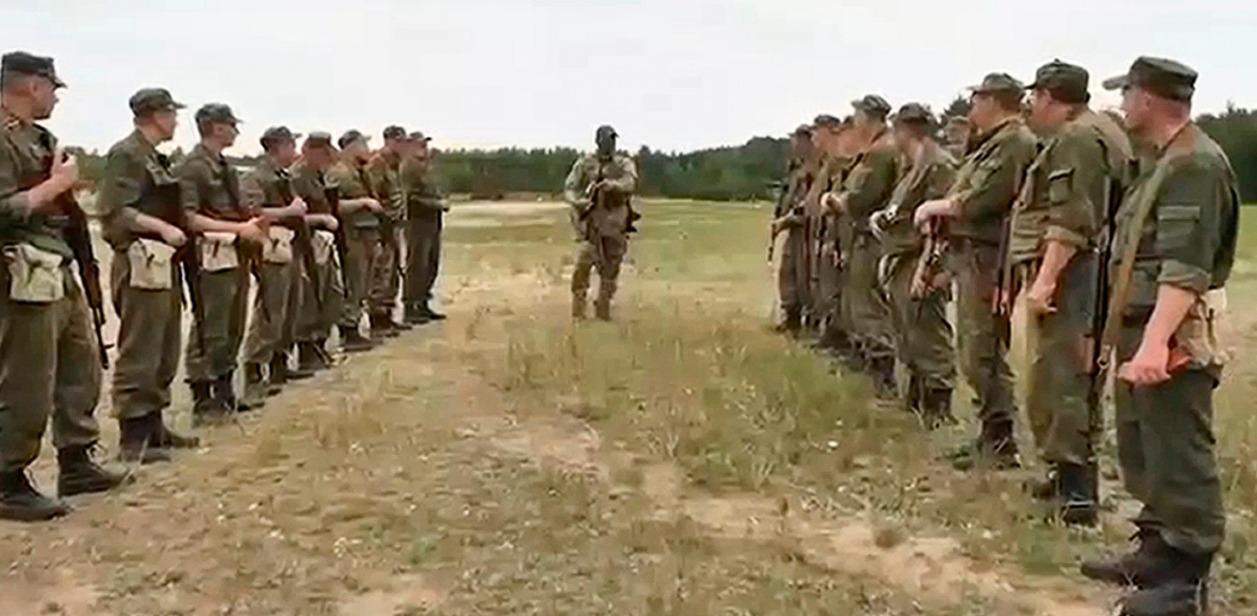At Belarus border, Ukrainians alert over Wagner threat
OSIPOVICHI, Belarus

At a long-closed crossing point from Ukraine to Belarus, Oleg, a camouflage-clad guard carrying a Kalashnikov, says he has seen no sign of Wagner mercenaries across the border, some 150 metres away.
Ukraine's military said it was reinforcing the border with Belarus with trenches and mines as some Russian mercenaries were expected to move to the country following their aborted mutiny against Moscow's top brass.
Ukraine is ready to "rebuff" Russia's forces including Wagner, said Oleg, 26, as he patrolled the Slavutych border crossing point, closed since February 24 last year, when Russian forces entered the Chernigiv region from Belarus at the start of the invasion.
"Since we were stabbed in the back from the territory of Belarus, we do not reject... that there may be some movements or deployment of Wagner fighters on Belarusian territory," Oleg told AFP.
Uncertainty persists over the fate of the mutinous Wagner troops since a deal was sealed between Moscow and Minsk, which should have seen some of them move to Belarus.
The Belarusian defence ministry confirmed on Friday that at least some had arrived, and were instructing local troops.
President Volodymyr Zelensky downplayed the move, saying Ukraine was "closely monitoring developments there from a security perspective, and currently, there are no major threats".
Driving south to the nearby village of Dniprovske, there were signs of activity in the woods: men in camouflage and fortifications, as well as a dummy figure positioned at the roadside.
The village's main street has two shops, a war memorial and church. A family of storks was nesting on top of a telegraph pole.
Smallholder Viktor Koren, 76, was walking to the shop to buy sour cream.
He drew in the dust with his stick to show how close he lives to the Dnipro river that forms the border.
"Of course I'm nervous. Because it's so close. There is a river near us, a border, and these assholes are fighting across the border," he said, referring to Russians.
He slammed Wagner chief Yevgeny Prigozhin for aborting his revolt against Moscow and allying with Belarusian President Alexander Lukashenko.
"He was going to Moscow and he didn't make it there... Why didn't he defeat them?" he said.
Stocking shelves in a grocery store, 20-year-old Ilya Bobok said he was confident that Ukraine could withstand any new attack.
"The first time they (Russians) had the element of surprise. Now I think, it's not going to work. We already have people trained in combat. Brave guys. I think there's nothing to be scared of."
"They may try but they'll be out of here very quickly."
The shop's owner, Kateryna Bobok, 37, echoed his confidence.
"If you've seen the guys protecting us, how can you be nervous?" she said.
She said she had heard on the news about Wagner's possible presence in Belarus but had seen "no signs that anything has changed".
"It's even a little quieter, which is a little bit alarming."
At the border there were weeds growing up through the tarmac and rusted signs about customs rules.
Before the war, around 500 vehicles a day passed through the crossing point.
On the morning of the invasion on February 24, Ukrainian border guards blew up a road bridge over the Dnipro river, which forms the border with Belarus.
Russian forces managed to enter the Chernigiv region that day anyway, which saw fierce fighting until they withdrew in April 2022. The region is still regularly shelled.
Oleg said Ukrainian forces estimate around 2,000 servicemen from Russia's conventional army to be on Belarusian territory as well as planes and helicopters from Russia's Space Forces.
The situation on the border is "controlled, calm, we don't record any provocations from the Belarusian side," Oleg said.
















